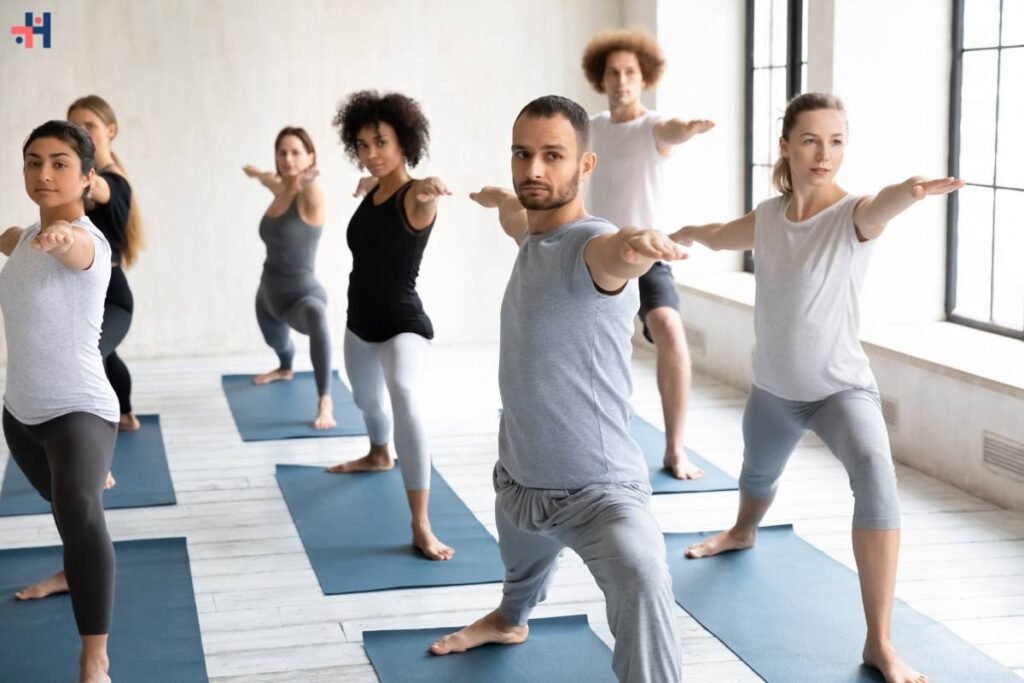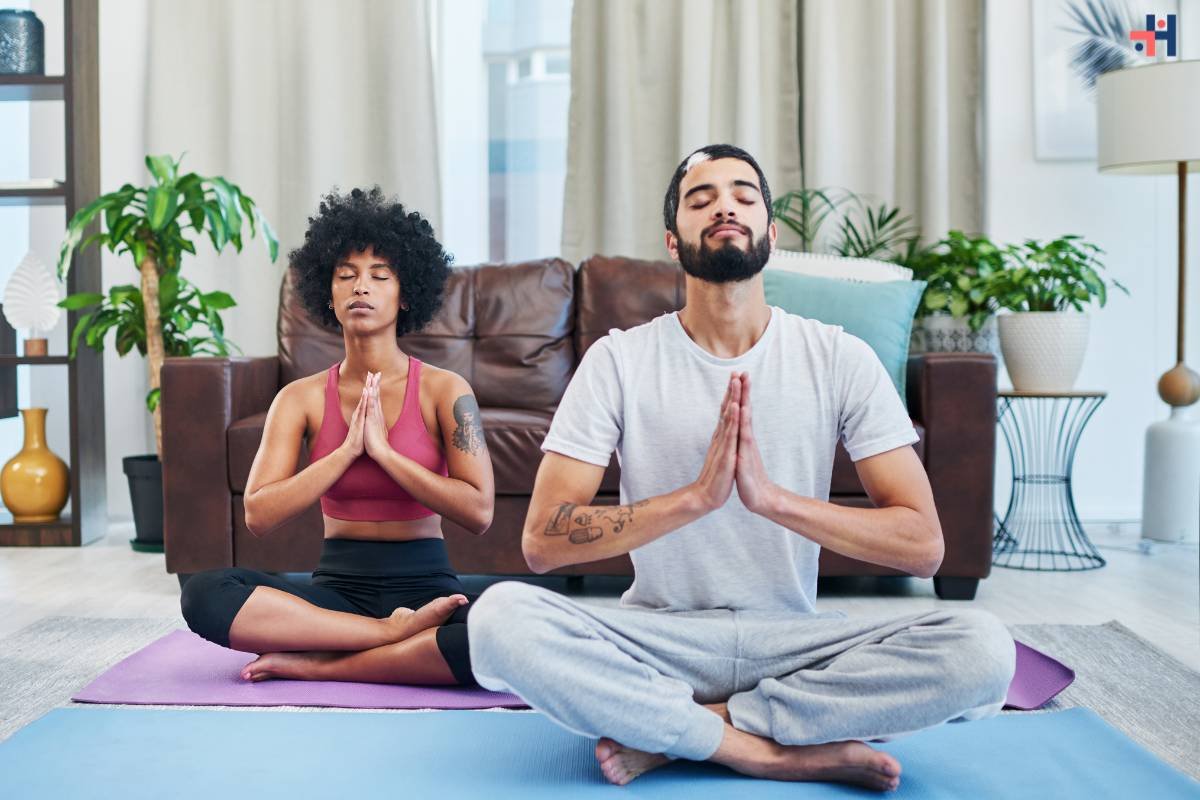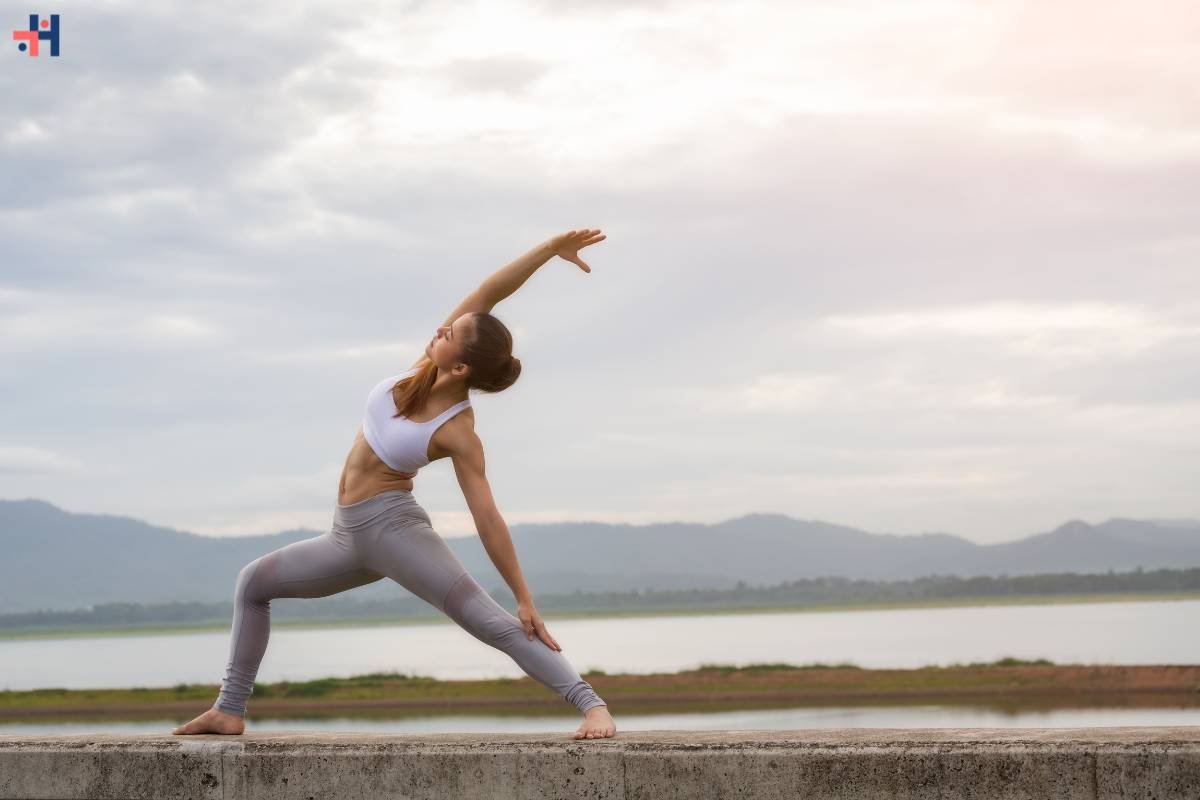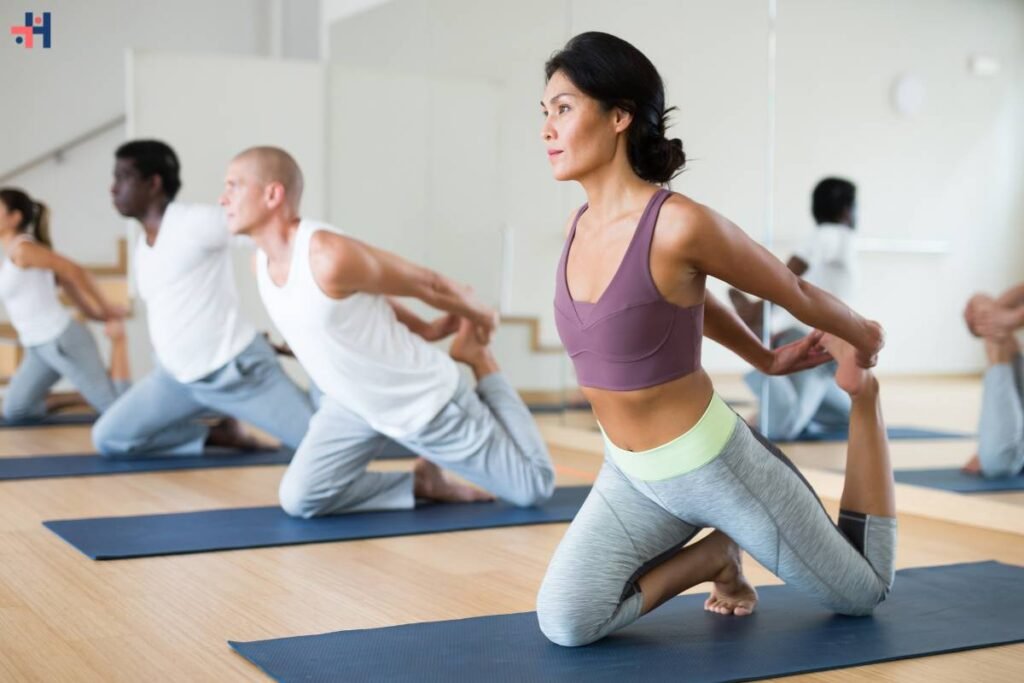Hatha yoga is a timeless and holistic way to achieve harmony between the mind, body, and spirit in the ever changing world of wellness practices. yoga, which has its roots in antiquated Indian customs, has crossed cultural barriers to become a popular and highly regarded method of promoting both physical and mental health. We will examine the essence of Hatha yoga in this thorough guide, as well as its history, tenets, and advantages. We will also look at how it has evolved into a life-changing practice that is embraced by people who want to maintain balance and vigour in their lives.
Understanding Hatha Yoga
Ⅰ. Origins of Hatha Yoga: A Historical Perspective
Hatha yoga finds its roots in ancient Indian scriptures, particularly the Yoga Pradipika, a classic text written in the 15th century by Swami Svatmarama. The term “Hatha” is a combination of two Sanskrit words, “Ha” meaning sun and “Tha” meaning moon. This reflects the core philosophy of Hatha yoga, emphasizing the balance and union of opposing forces, such as the masculine (sun) and feminine (moon) energies within the body.
Ⅱ. Philosophy of Hatha Yoga: Balancing Opposites
At its core, Hatha yoga is a system designed to balance opposing forces, creating equilibrium within the practitioner. This balance extends beyond the physical postures, incorporating breath control (pranayama), meditation, and ethical guidelines (yamas and niyamas). The philosophy emphasizes the interconnectedness of the physical body, breath, and mind.
The Practice of Hatha Yoga
Ⅰ. Asanas: Physical Postures for Strength and Flexibility
Central to Hatha yoga are asanas, or physical postures, which are designed to promote strength, flexibility, and balance. The practice of asanas involves holding poses with mindful awareness, allowing practitioners to explore their bodies, cultivate concentration, and release tension.
Ⅱ. Pranayama: Harnessing the Power of Breath

Pranayama, or breath control, is a fundamental aspect of Hatha yoga. Various breathing techniques are incorporated to enhance the flow of prana, or life force energy, throughout the body. By mastering pranayama, practitioners learn to control and deepen their breath, promoting relaxation, focus, and vitality.
Ⅲ. Meditation: Cultivating Mindfulness and Inner Stillness
Hatha yoga encourages the cultivation of mindfulness through meditation. Whether in seated meditation or integrated into asana practice, meditation in yoga serves as a tool to quiet the mind, enhance self-awareness, and connect with the present moment.
Ⅳ. Shatkarmas: Purifying the Body
Shatkarmas, or cleansing techniques, are another facet of Hatha yoga aimed at purifying the body and mind. These practices include techniques like neti (nasal cleansing), dhauti (internal cleansing), and kapalabhati (skull-shining breath). Shatkarmas are believed to remove toxins, balance energy, and prepare the body for deeper spiritual practices.

Yoga Poses for Beginners: Embark on a Journey of Serenity and Tranquility
Yoga is a centuries-old practice that originated in ancient India and has spread throughout the world as a popular form of wellbeing.We go over a carefully chosen list of basic yoga poses for beginners in this extensive book, encouraging people to take a peaceful path to better physical and mental health.
The Benefits of Hatha Yoga
Ⅰ. Physical Well-Being: Strength, Flexibility, and Balance
One of the primary benefits of Hatha yoga is the enhancement of physical well-being. Regular practice improves strength, flexibility, and balance, contributing to better posture and reduced risk of injuries. The emphasis on body awareness encourages practitioners to listen to their bodies and move with intention.
Ⅱ. Stress Reduction: Finding Calm Amidst Chaos
Yoga serves as a powerful antidote to the stresses of modern life. The combination of mindful movement, controlled breathing, and meditation helps reduce stress levels, promoting a sense of calm and tranquility. This, in turn, positively impacts mental health and emotional well-being.
Ⅲ. Improved Respiratory Function: Enhancing Breath Awareness

The focus on pranayama in Hatha yoga contributes to improved respiratory function. Breath awareness and control enhance lung capacity, oxygenate the body, and promote a sense of vitality. This can be especially beneficial for individuals dealing with respiratory conditions or seeking to optimize their overall well-being.
Ⅳ. Enhanced Mental Clarity: Sharpening Cognitive Function
Hatha yoga’s emphasis on mindfulness and meditation supports mental clarity and cognitive function. The practice encourages a heightened sense of awareness, concentration, and a calm mind. Regular practitioners often report improved focus, memory, and mental resilience.
Ⅴ. Balanced Energy Flow: Harmonizing the Body’s Vital Forces
Hatha yoga seeks to balance the flow of energy, or prana, within the body. Through the practice of asanas, pranayama, and meditation, practitioners aim to remove blockages and promote the free flow of energy. This balanced energy contributes to overall vitality and a sense of well-being.
Ⅵ. Emotional Resilience: Nurturing Emotional Intelligence
The mind-body connection fostered by Hatha yoga extends to emotional well-being. The practice encourages self-reflection, emotional awareness, and the development of emotional intelligence. Practitioners learn to navigate and respond to emotions in a more balanced and mindful manner.
Incorporating Hatha Yoga into Daily Life
Ⅰ. Adaptable for All Levels: Inclusivity in Practice
One of the strengths of Hatha yoga is its adaptability to various fitness levels and physical abilities. Whether you’re a beginner or an experienced yogi, Yoga can be tailored to meet individual needs. It provides a foundation for those new to yoga while offering challenges for seasoned practitioners.
Ⅱ. Accessible Anywhere: A Practice Beyond Studio Walls

Hatha yoga’s simplicity and versatility make it accessible for practice virtually anywhere. While attending a studio class is beneficial, individuals can incorporate yoga into their daily routines at home, in nature, or even during work breaks. All that’s needed is a mat and a willingness to connect with the present moment.
Ⅲ. Lifelong Learning: A Journey of Self-Discovery
Hatha yoga is not just a physical practice; it’s a journey of self-discovery and lifelong learning. As practitioners delve deeper into the philosophy and principles of Hatha yoga, they uncover new layers of understanding about themselves and the interconnectedness of all aspects of life.
Conclusion:
With its extensive history and all-encompassing methodology, hatha yoga continues to be a life-changing practice that transcends exercise. It provides a route to vitality, equilibrium, and self-discovery. People can embark on a meaningful journey towards comprehensive well-being by embracing the principles of Hatha yoga, which include balancing opposing energies, developing mindfulness, and feeding the body. Yoga continues to encourage people in their pursuit of harmony—both within themselves and in the environment around them—whether they practise on a mat, in a studio, or as part of their regular routine.









